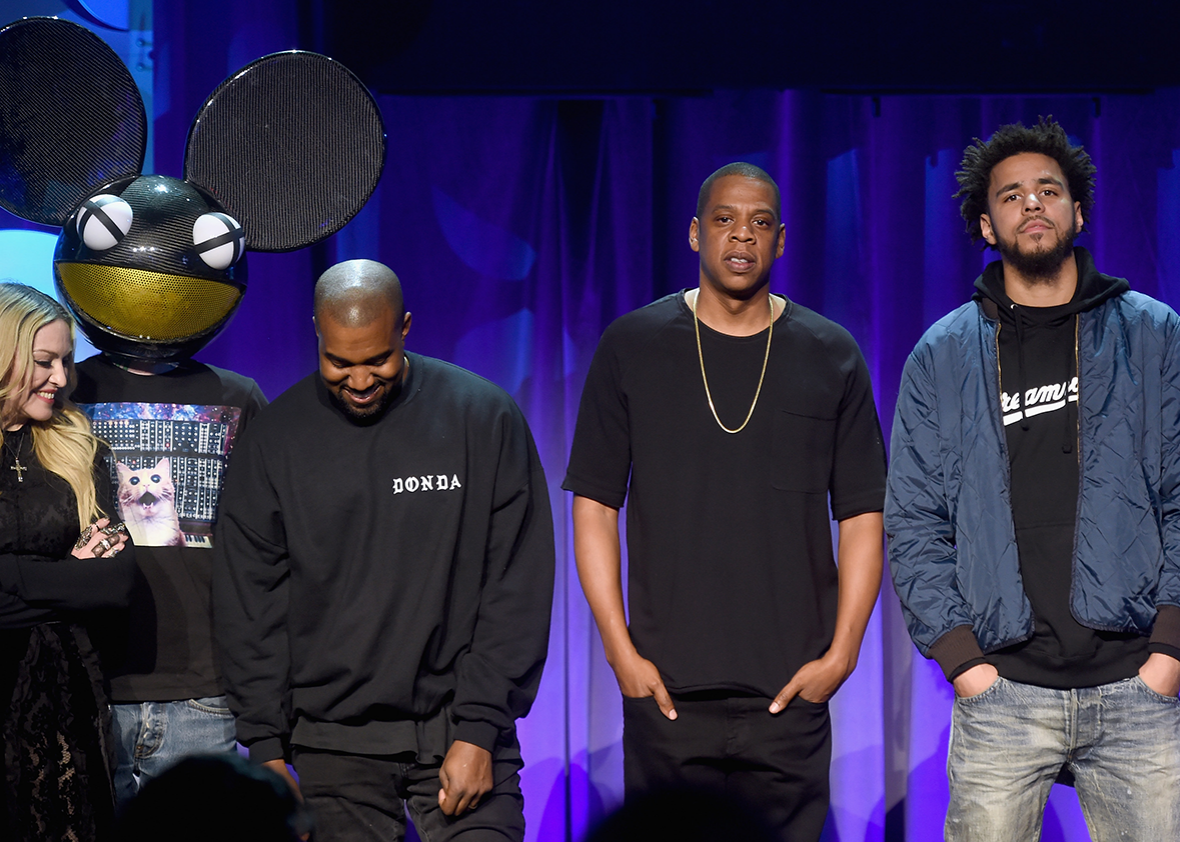People:
Cindy Cohn: An internet law attorney, Cohn serves as general counsel to the Electronic Frontier Foundation.
Cory Doctorow: Doctorow, a blogger and science fiction writer, has been a public opponent of copyright law and digital rights management.
Carla Hayden: As the 14th librarian of Congress, Hayden is partially responsible for issuing exemptions to rules that prohibit access to copyrighted systems.
Travis Kalanick: Kalanick serves as CEO of Uber, a company positioned to undermine car ownership as we know it.
Jay Z: Along with a handful of other musicians, Jay Z co-owns Tidal, a music streaming service attempting to return some control of media to artists.
Lingo:
Digital Millennium Copyright Act: Also known as the DMCA, the Digital Millennium Copyright Act restricts attempts to circumvent digital copyright protections—and has been widely criticized from limiting fair use, obscuring technological faults, and otherwise armoring rights holders.
End user license agreements: Also known by the initialism EULA, end user license agreements dictate how and in what ways users can employ a piece of software.
Post-scarcity: An economic condition in which material goods are available freely or at minimal cost thanks to technological innovation.
Sharing economy: The sharing economy encompasses a variety of technologies and platforms that allow individuals to provide goods and services to one another directly.
Creative Commons license: Creative Commons licenses grant a broad and varied array of rights that would be reined in by more traditional copyright protections, opening up opportunities to circulate and modify images, songs, and creative works of all kinds.
Debates:
Disappearance of public utilities: In their attempts to disrupt existing systems, companies such as Uber may make it harder for public transportation authorities and other similar organizations to function. Will changing norms of ownership benefit everyone or only those who can afford to pay?
Loss of agency: While our increasingly on-demand society gives us access to more resources than ever before, we arguably have less control over how and in what form they arrive. Will our quest for convenience strip us of our ability to manage our own lives?
Right to tinker: Advocates of the right to tinker believe that we shouldn’t need permission to modify objects like smartphones and automobiles. But some companies hold that copyright protections allow them to forbid users from doing certain things, like jailbreaking phones. Will attempts to protect corporate ownership strip us of our ability to modify technology?
Techno-feudalism: Far from eliminating ownership altogether, emerging technologies may simply intensify it, leaving us laboring in the service of the few companies that control access. Will changing ownership norms simply turn us into a society of serfs?
Further reading:
“The Past, Present, and Future of Ownership,” On the Media: This episode of the WNYC show explores a variety of perspectives on the changing state of ownership, from a case study on the birthday song to an interrogation of plagiarism.
Abundance by Peter H. Diamandis and Steven Kotler: Diamandis and Kotler propose that technological innovation might help ease social ills by eliminating scarcity as we know it.
“Oversharing” by Ali Griswold: In this email newsletter, Griswold leads readers through the complexities of the sharing economy.
“The Netflix Backlash,” by Kim Masters: In its quest to control more of the content it streams, Netflix is throwing enormous amounts of money into original productions, unsettling Hollywood norms in the process.
“Apple Destroyed My Will to Collect Music,” by Leon Neyfakh: In this impassioned cri de cœur, Slate’s Neyfakh looks into the accusation that iTunes and Apple Music were messing with users’ libraries.
“The Third Transportation Revolution,” by John Zimmer: Zimmer, the CEO of Lyft, lays out an ambitious project for the end of individual car ownership in this manifesto.
Pop culture:
@Midnight: This television game show asks comedians to improvise jokes based on content drawn from the internet, potentially complicating received notions of online authorship.
Ubik by Philip K. Dick: This classic science fiction novel anticipates a world in which even exiting your apartment means paying a fee to the door.
Down and Out in the Magic Kingdom by Cory Doctorow: Doctorow thinks through some of the complications of a post-scarcity economy in this novel.
Mr. Robot: On this television series, a group of hackers attempts to radically redistribute the world’s wealth.
Second Life by Linden Lab: Though it has long since fallen from the public eye, this multiplayer game allowed players to “own” virtual property—famously spawning at least one real world millionaire in the process.
This article is part of the future of ownership installment of Futurography, a series in which Future Tense introduces readers to the technologies that will define tomorrow. Each month, we’ll choose a new technological issue and break it down. Future Tense is a collaboration among Arizona State University, New America, and Slate.
Portrait photos by Anna Webber/Getty Images, jonathanworth.com, whitehouse.gov, Ben Gabbe/Getty Images, and Mike Coppola/Getty Images.
